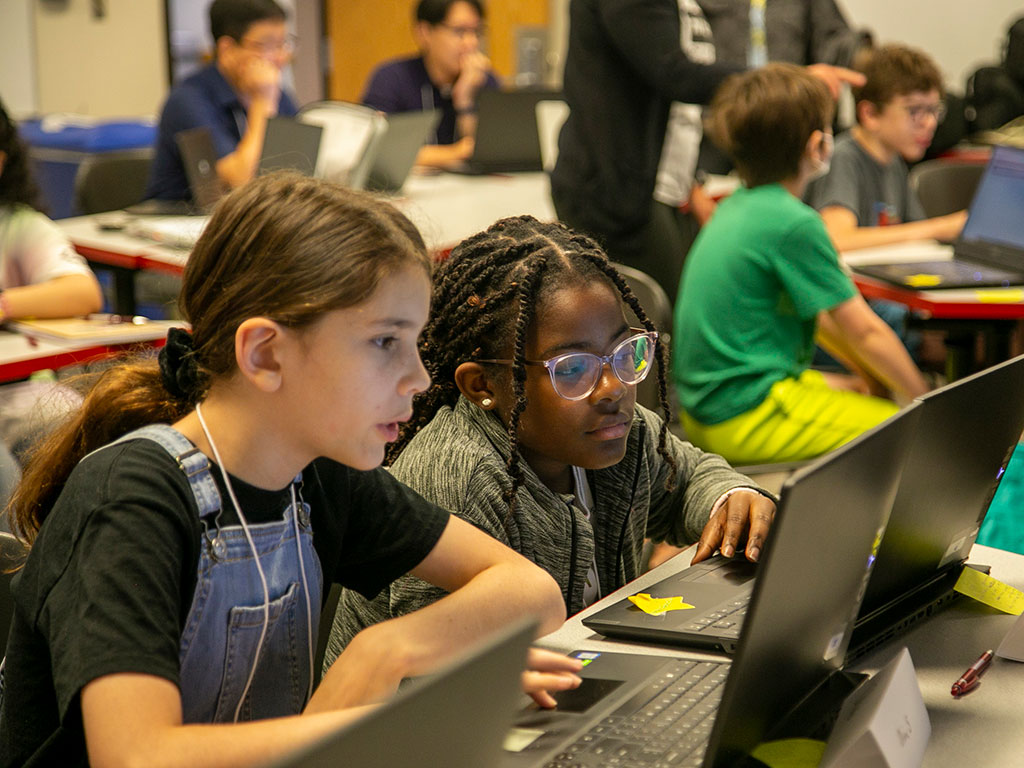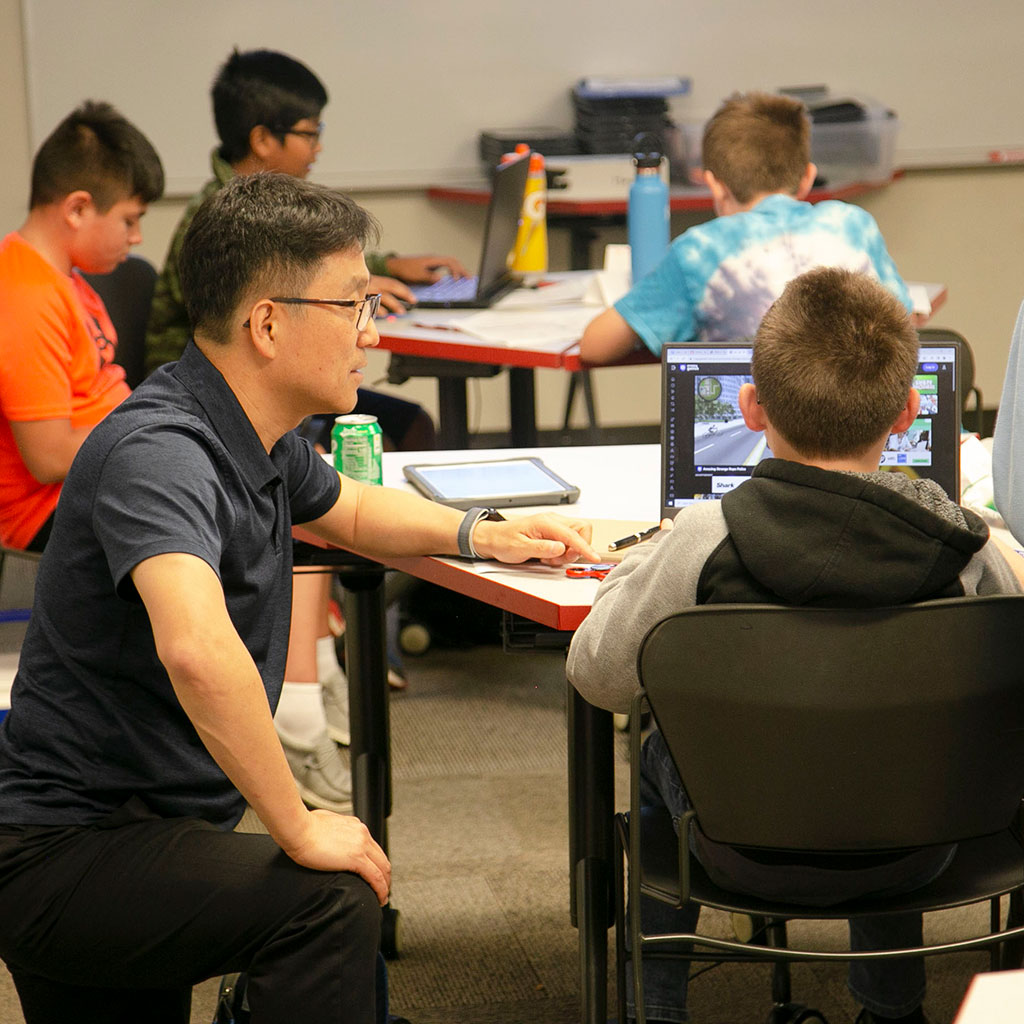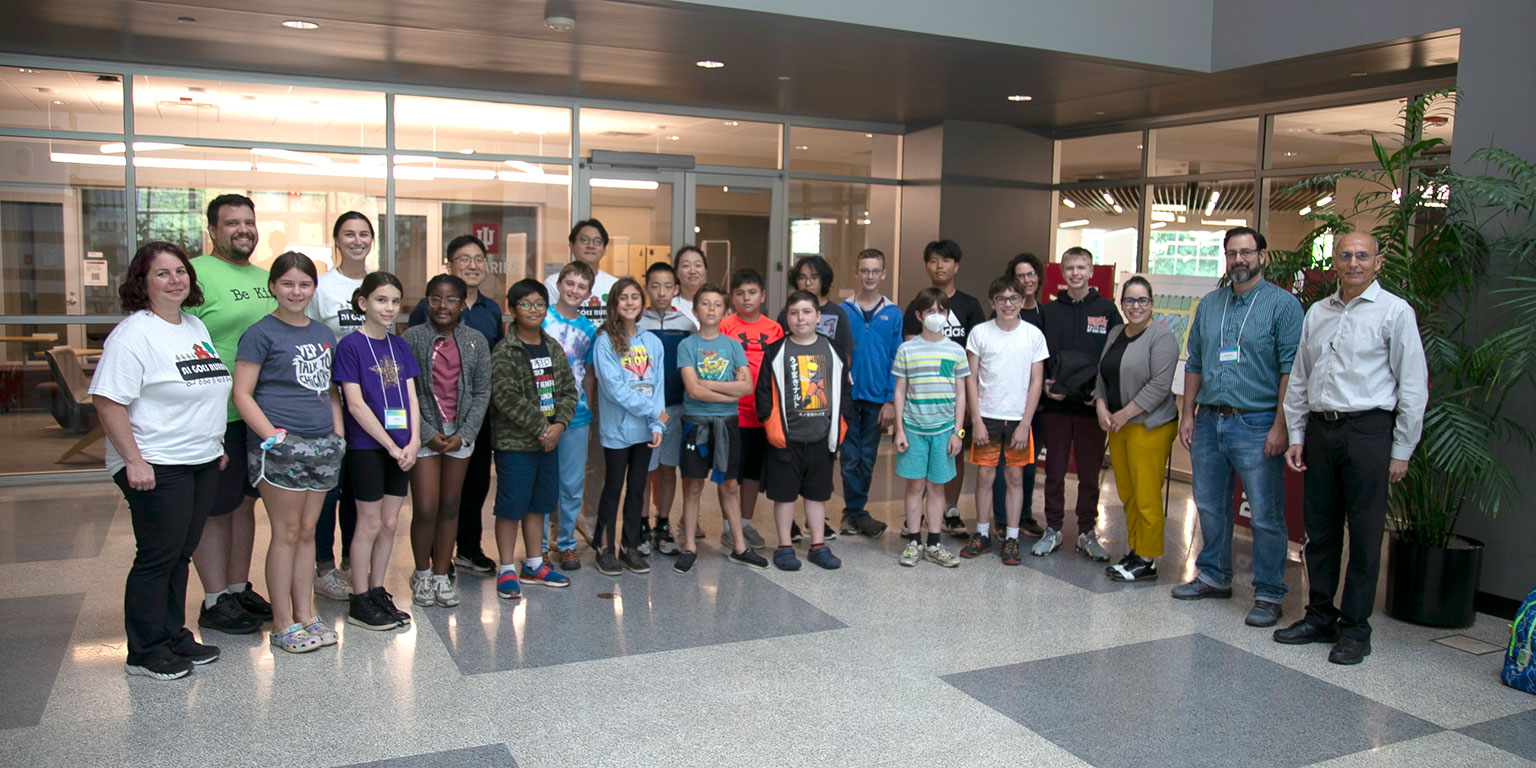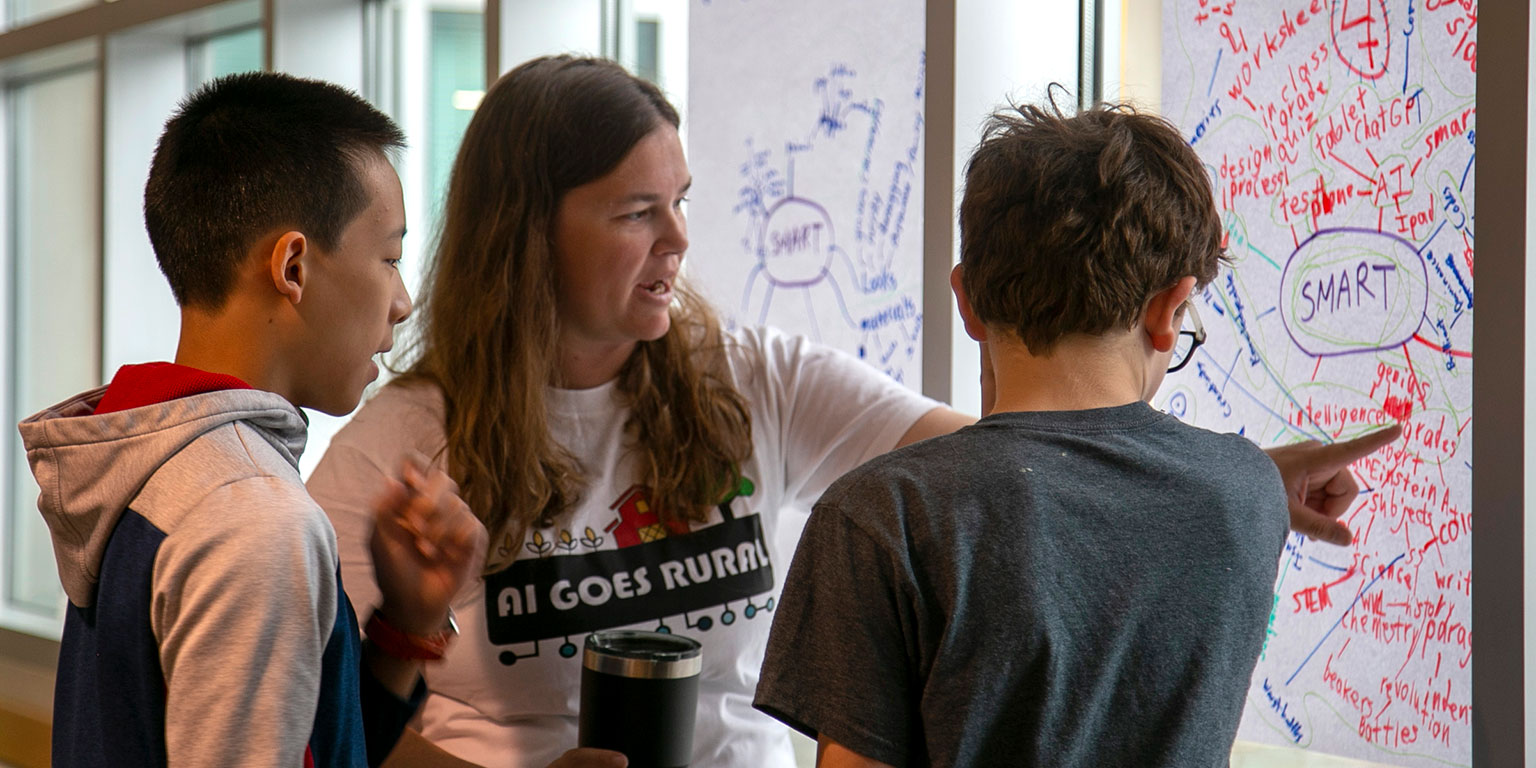A week-long day camp over the summer taught middle-school students all about artificial intelligence - and helped IU School of Education faculty continue their mission to introduce AI in rural communities.
The camp is part of a three-year project, AI Goes Rural, funded by the National Defense Education Program. The project aims to develop curricula about AI in collaboration with middle school STEM teachers, emphasize the importance of visualization and representation with computers and how they perceive data and provide opportunities for students to apply AI concepts to real-world applications and consider the ethical implications of AI.
“Early exposure to AI education has the potential to transform students' interests, shape their course selections, and even steer their career paths. However, regrettably, not all students are granted equal learning opportunities,” said Kyungbin Kwon, the principal investigator for the project. “One of the primary challenges faced by students in rural areas is their limited access to quality education. The scarcity of resources, such as AI curricula embedded in various subjects and advanced learning tools, puts these students at a disadvantage. Moreover, the absence of knowledgeable teachers with expertise in AI further compounds the problem. To address these disparities head-on, the project focuses on enhancing both student and teacher experiences in rural Indiana.”





